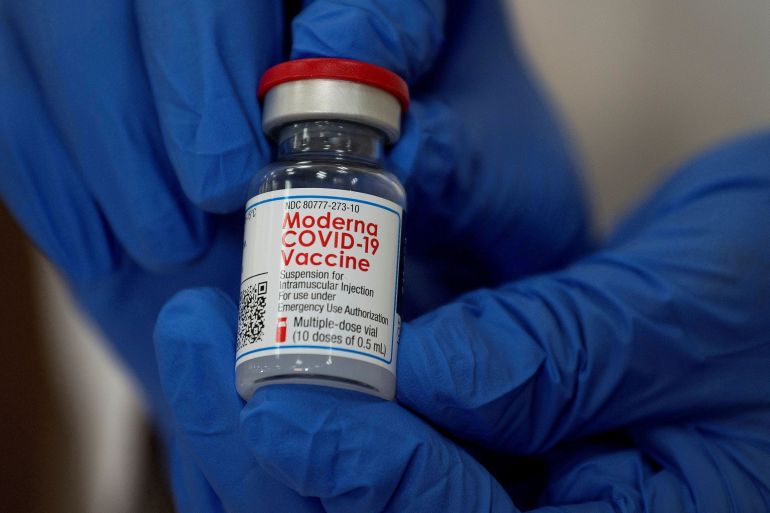US to recommend booster jabs for all as Delta variant rises
Americans are experiencing a fourth wave of the pandemic as COVID spreads quickly through unvaccinated communities.

United States health authorities are expected to recommend an extra dose of COVID-19 vaccine for all Americans as the Delta variant of the virus spreads quickly across the country.
Health officials in US President Joe Biden’s administration will recommend that most people should get a booster shot eight months after they completed their initial vaccination, a source familiar with the decision told the Reuters news agency.
Keep reading
list of 4 itemsVaccinated should wear masks indoors in US COVID hotspots: CDC
US COVID spike: ‘More pain and suffering’ ahead, says Fauci
‘Wrong and shameful’: Critics decry extended US COVID refugee ban
The extra jabs could begin as early as mid or late September, pending authorisation from the US Food and Drug Administration, the source said.
The forthcoming recommendation by the US Centers for Disease Control (CDC), telegraphed by US officials last week, is being driven by both the highly contagious new variant of the virus and early signs that protection from vaccines fades within months.
The move means that the biggest mass vaccination drive in US history, which has been only partially successful, will have to expand and continue.
The US is experiencing a fourth wave of the pandemic as the Delta variant spreads aggressively through unvaccinated communities in the US – notably southern states of Florida, Alabama, Mississippi, Louisiana and Texas – and causing an increasing number of “breakthrough infections” of fully inoculated people.
US has fully vaccinated 168 million people, or about 62 percent of the adult population as of August 16, according to the CDC. Those numbers are below benchmarks set by the Biden administration for the national vaccination programme by now.
The US now is admitting to hospital more than 11,000 people a day with symptoms of COVID-19, according to the CDC.
Alabama Governor Kay Ivey issued an emergency order on Friday as the state’s hospitals faced a surge in COVID-19 cases and available intensive care beds were filled up with the very ill.
“We have to really make sure that while we’re spending a lot of time and effort on third doses that we don’t undermine our campaign for first vaccinations,” Lawrence Gostin, a public health specialist at Georgetown University, said Tuesday.
“That’s truly the existential crisis in the United States,” Gostin told The Associated Press.
One positive trend in the US, vaccination rates have been increasing as people see the virus resurge.
Harris County, Texas, home to the US’s fourth-largest city Houston, is offering people $100 gift cards to get jabs in the latest incentive offered by local officials to boost the area’s lagging vaccination rate, according to the Houston Chronicle newspaper.
In New York, the governor has ordered that all healthcare workers in the state including at hospitals and nursing homes receive a vaccine against COVID-19.
Biden issued an order on Tuesday directing the Federal Emergency Management Agency (FEMA) to cover 100 percent of local costs for emergency measures and provide federal support for state governor’s use of the National Guard to staff mass vaccination sites.
Last week, US health officials recommended boosters for people with weakened immune systems, such as cancer patients, organ transplant recipients and people who take medications to suppress their immune systems for chronic disorders such as rheumatoid arthritis.
Vaccine maker Pfizer announced plans in July to apply for approval for boosters.
Among the first likely to receive the booster shots once they are approved for all would be healthcare workers, nursing home residents and other older Americans, who were some of the first to be vaccinated once the shots were authorised last December.
Later on Tuesday, the US Transportation Security Administration (TSA) also confirmed it would extend a federal transportation mask requirement through January 18 at airports, transit hubs and on planes, trains and buses, in an effort to slow the spread of the virus.
The current directive was scheduled to run through September 13.